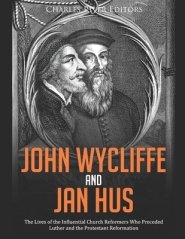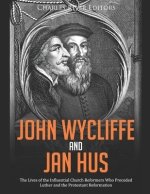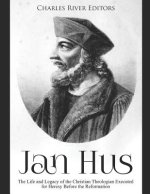*Includes pictures
*Includes a bibliography for further reading
In the mid-14th century, the Vatican called upon England and sought financial aid in the hopes of boosting papal defenses against French forces. It was then that a man named John Wycliffe boldly stepped forth and appealed to the John of Gaunt, urging the Duke of Lancaster and Parliament to repudiate Rome's demands and citing what he believed to be the Church's abundance in wealth. According to Wycliffe, Christ's disciples, particularly clergymen, must aspire to live modestly and shun all material pleasures. Such was the word of the Lord.
Despite the growing tensions between Wycliffe and the Catholic Church, he was invited to partake in a religious committee that aimed to find solutions for the apparent failings of the institution in 1374, but progress was slow, impeded by the corruption of the priests who readily accepted bribes and immoral incentives. Wycliffe, on the contrary, was equipped with a cast-iron will and refused to cave in to temptation. His strength of character earned him the approbation of the Duke and members of Parliament. The same could not be said about his fellow clergymen.
Wycliffe's relentless criticism of the Church only continued to escalate, and eventually he was summoned to London and charged with the unforgivable crime of heresy. To the dismay of his detractors, the hearing was anything but black and white, and heated verbal exchanges soon spiraled into physical altercations. This resulted in a temporary deadlock that was broken only three months later when Pope Gregory XI published five papal bulls that unequivocally banned all of Wycliffe's teachings and found the heretic, dubbed the "master of errors," guilty of 18 counts of heresy. The end, it appeared, was nigh, but Wycliffe remained unfazed, declaring, "I profess and claim to be by the grace of God a sound...Christian and while there is breath in my body, I will speak forth and defend the law of it." Wycliffe told the archbishop at Lambeth Palace, "I am ready to defend my convictions even unto death...I have followed the Sacred Scripture and the holy doctors."
While Wycliffe's critics rejoiced at the news of his demise, they soon discovered that his influence was far more difficult to extinguish than they initially anticipated. In 1427, a whole 43 years after Wycliffe's passing, his corpse was exhumed by local authorities and cremated, and the ashes were dumped into the River Swift, but Wycliffe's indelible ideas had taken on a life of their own
The revival of Wycliffe's ideas, many believe, was ignited by receptive Bohemian students who were introduced to the reformer's works at Oxford University and became so moved by his thoughts that they felt it absolutely imperative to spread the good word in their own kingdoms. Questioning Christians quietly perused compilations of Wycliffe's books and were, at the very least, intrigued by the nonconformist's opinions. One curious mind, however, was supposedly so inspired by Wycliffe that he was at once galvanized into action. Instead of simply parroting Wycliffe's seditious ideas, he launched an entire movement and remained fervidly true to his cause, even when his own life was at stake. This fearless firebrand was none other than Jan Hus, the father of the Bohemian Reformation and one of the most infamous heretics in all of Europe.
Hus started as a Czech priest, but he quickly became notorious for debating several Church doctrines such as the Eucharist, Church ecclesiology, and many more topics. Today, he is viewed as a predecessor of the Lutherans, but the Church viewed him as a threat, and the Catholics eventually engaged Hus' followers (known as Hussites) in several battles in the early 15th century. Hus himself was burned at the stake in 1415, but his followers fought on in a series of battles known as the Hussite Wars.
Trustpilot











